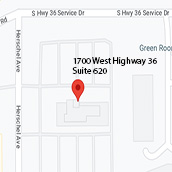Why Do I Need A Personal Representative For My Will?
A Personal Representative (PR), also known as an Executor, carries out your wishes as stated in your Will. That means they apply to the Court to get the authority to collect whatever assets you have and put them in the estate account, they then pay bills, file the tax returns and distribute what’s left over to your beneficiaries. In essence, they are stepping into your shoes to deal with all of your financial obligations. Our friends at The Law Offices of Julie Kreutzer explore the intricacies of estate management and the vital role a Personal Representative plays in ensuring a seamless probate process below.
While this may look simple, the person who does this job should be good at doing paperwork in a timely way, willing to communicate with people like creditors and beneficiaries, and bring in accountants, realtors and attorneys when needed. Some PRs may be fairly sophisticated, but because they have a fiduciary obligation to handle these matters properly, they may well need assistance or advice in some matters. If you want these costs to be paid by your estate, it’s best to say so in the Will, otherwise your PR may be obligated to pay those costs, depending on the state rules where the Will is probated.
Here’s an example: You name your spouse to be your PR. When you pass, s/he files with Probate Court and gets authority from the Court to supply to people like Banks. Once s/he has been appointed and has authorized Letters Testamentary, s/he begins collecting assets from sources like bank accounts, selling real estate, investments and putting these funds into an Estate Account. S/he also deals with notifying and paying creditors. S/he files various documents in Probate Court. S/he might bring in an accountant to do the Tax Returns, or an attorney to file the correct pleadings when they are due in Probate Court or to get advice and might well need a realtor to sell real estate. By the time the process is through, all assets have been collected, debts paid and then beneficiaries receive what they are to receive. Final documents are then filed in the Court.
While it is necessary to name a PR, it’s best to also name one or two backups, because your primary PR might not outlive you or might not be able to serve, so then you want to have a person next in line and my preference is to have a third, just in case.
A final thing to consider is how to help your PR carry out your wishes. In the old days they’d watch the mail for bills and account statements. But, in this electronic age, it is crucial to do a Summary of Assets and Liabilities on your computer that states your email addresses and passwords so they will have access to statements that come to your email, as well as all of your assets with account numbers, passwords, contacts, emails, phone numbers etc. The same is needed as to your liabilities. You’ll update and use this document during your lifetime and likely find it’s useful, particularly for things like Life Insurance where you irregularly contact your agent. Be sure to print updated versions of the Summary to have with the Will and put in a secure location. This Summary allows your PR to better understand your financial affairs and keeps them from being taken advantage of by scammers posing as creditors, or missing important assets they wouldn’t otherwise be aware of. Also consider discussing with your PR and backups that you will be naming them. Some clients choose to share their Will with PRs so any questions they might have can get answered and they feel more comfortable with their role.
For a comprehensive understanding of these processes and to ensure all legal aspects are addressed, consulting with an estate planning lawyer is highly recommended.






